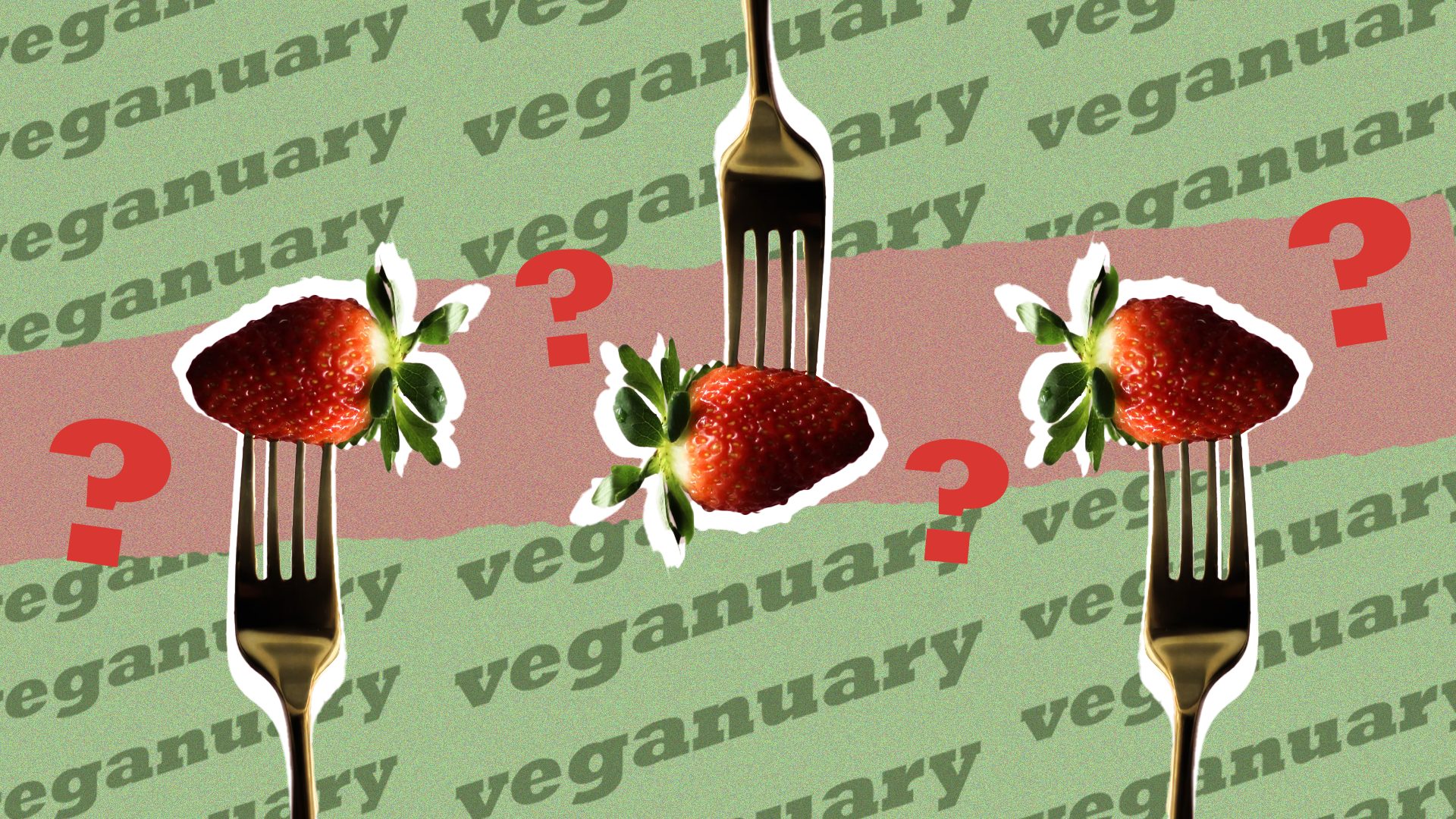Hundreds of thousands of us chose to take part in Veganuary last year. But is this seemingly eco-friendly trend as healthy for the planet as it is for us?
As the days get shorter and Christmas approaches, most of us inevitably turn to feasting, lounging, and Netflixing binging.
The indulgence of winter usually triggers a surge in healthy eating at the start of a new year. But is Veganuary, the latest post-Christmas health trend, really all that good for the planet?
While plant-based eating has triggered backlash over the years – particularly from the dairy and farming industries – the environmental benefits are hard to ignore. And as global pressure mounts for sustainable consumption, vegan diets show no sign of waning.
Greenpeace has estimated that the number of vegan and vegetarian Brits has quadrupled since 2014, with around 1% of the country now eating plant-based. Sainsbury’s has even suggested that by 2025, a quarter of the UK will be swapping meat for soy.
It’s no surprise, then, that this marriage of plant-based eating and post-Christmas remorse has resulted in a wildly popular new year trend. Slotted in amongst the ‘Stoptobers’ and ‘Movembers’, ‘Veganuary’ is the latest in a long list of self-help months.
The pros of a Vegan new year certainly seem to outweigh the cons. But according to English farmer Robyn Hogg, it might be worth considering alternatives before we sprint to the Linda McCartney aisle.
Hogg has lived on a farm her whole life, and while she agrees with the concept of Veganuary, the 23-year-old has suggested it take place in July instead.
On paper, her reasoning makes sense. Fruit and vegetables, along with meat alternatives like Jackfruit and soy, are not seasonal nor local to the UK during cold winter months.
While we could enjoy fresh summer berries and popular vegetables during the summer, in January, these items must be shipped in from as far as Australia – and air miles quickly rack up.
As a vegan of 8 years plus, perhaps I’m biased. But Hogg fails to unpick the alternatives to a meat free January. She compares real pulled pork to jackfruit, rightly pointing out that the former, if sourced locally, requires no importation.
Sadly, though, many meat eaters don’t eat locally sourced produce. And even when they do, the grain needed to feed that livestock has a staggering air mile count of its own.
Hogg seems to have fallen victim to the same vegan myths as other farmers. While a veggie diet certainly isn’t perfect, the notion that alternative-meat and dairy consumption is driving deforestation is false and outdated.




















